
Supporting the warfighter of today with innovation of tomorrow
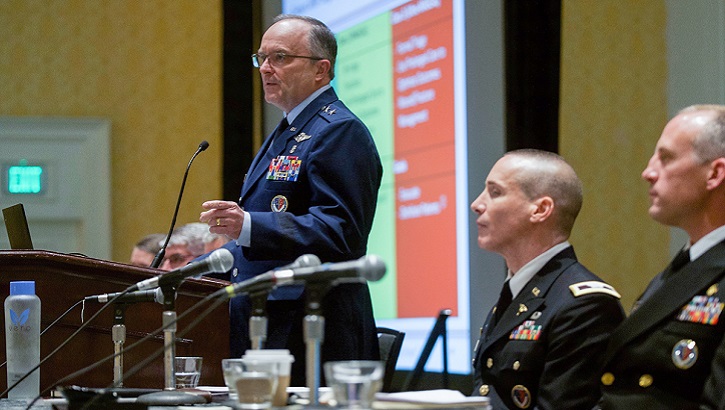
Air Force Maj. Gen. Lee Payne, assistant director of DHA's Combat Support Agency, moderates a panel presentation on Wednesday, August 21 at MHSRS. (MHS photo)
KISSIMMEE, Fla. — Air Force Maj. Gen. Lee Payne, assistant director of the Combat Support Agency at DHA moderated a panel on Wednesday afternoon at the Military Health System Research Symposium at the Gaylord Palms Resort and Convention Center. Titled “The Future Front Line: Supporting the Warfighter of Today with Innovation of Tomorrow” the session focused on how military medical research directly translates to support the warfighter.
Payne introduced the session saying, “The DHA’s combat support role is an integral contributor to the National Defense Strategy’s prioritization of readiness: everything we do is aimed at building a medically ready force and a ready medical force. The presentations will reflect the range of research underway to develop innovative technologies and practices that will better protect, better prepare, and better care for our troops downrange.”
Air Force Col. Stacy Shackelford, director of the joint trauma system at the Combat Support Agency and her team are applying evidence-based principles for triage events, particularly for large numbers of casualties. Time is a critical triage tool, said Shackelford, citing data that shows most mortalities occur with the first hour of injury. The goal, continued Shackelford, is to determine when we can save the most lives and she acknowledged that the first hour – the golden hour – is still critically important. However, by grouping casualty triage into three different levels, threat elimination, availability of medics, and medevac capability determine the best care for mass casualty events.
Air Force Col. Randall Ivall, chief of the Medical Logistics Division spoke about the systemic innovations that are being implemented in order to find inter-operable medical capabilities across the military medical enterprise. He described how standardization of medical logistics support will not only save money, but it will provide standardization that will be compatible with MHS GENESIS and ultimately, could improve safe patient care. For example, equipment and procurement will go through a pre-acquisition approval with requirements sent to industry partners prior to ordering. Ivall referred to such innovation as a customer-focused, agile model of delivery.
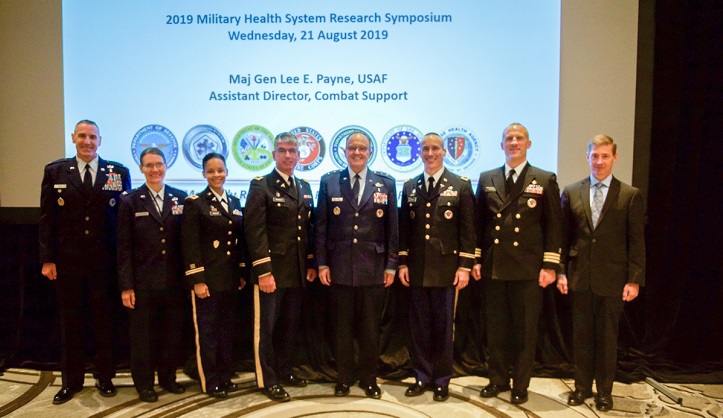
Panelists from the breakout session "The Future Front Line: Supporting the Warfighter of Today with Innovation of Tomorrow” pose together on Wednesday, August 21. Pictured from left: Air Force Col. Randall Ivall; Air Force Col. Stacy Shackelford; Army Col. Audra Taylor; Army Col. Louis Finelli; moderator Air Force Maj. Gen. Lee Payne; Army Col. Chad Weddell; USPHS Cdr. Mark Sheckelhoff; and Dr. Bruce McClenathan. (MHS photo)
Army Col. Audra Taylor, division chief of the Armed Services Blood Program described an array of active partnership efforts. The Food and Drug Administration and the Department of Defense are partnering to expedite delivery of blood products as far forward to the point of injury as possible. Per Taylor, this increases survivability, eliminates need for refrigeration, requires limited manipulation of products before use, and they are products that can be carried with the warfighter.
Taylor also described the low titer group O whole blood program that is preferred for deployed locations. The concept of walking blood banks is being tested by the XVIII Airborne Corps and the Armed Services Blood Program at Fort Bragg to identify soldiers with blood type O who can provide an immediate blood donation for a person of any blood type who needs a transfusion. An August 6, 2019 health.mil article provides more details about this program.
Army Col. Chad Weddell, chief of the Veterinary Service Division at the Public Health Directorate provided an audience-friendly example of supporting casualty care for service dogs that might require chemical decontamination. He described how dogs are force multipliers, especially for special operations troops, who requested the research for when they are deployed to desert environments. The results showed that low water volume wash mixed with a special scrub lotion and surgical scrub lather decontamination was as effective as traditional water-rinse methods.
Dr. Bruce McClenathan is a retired Army Medical Corps officer and regional medical director of the DHA Immunization Healthcare Division’s South Atlantic Region Vaccine Safety Hub at Fort Bragg. He spoke about the Immunization Healthcare Division goals and collaborative partnerships with the Centers for Disease Control and Prevention, FDA and universities that are supporting the development of new and improved vaccines and enhancing the vaccine safety system to support warfighter readiness. Also, a new smallpox vaccine is expected to receive FDA approval this fall.
After a lively question and answer between the panelists and attendees, Payne thanked everyone for their participation. “The DHA is here to help solve problems and find the resources to fill gaps – and we stand ready to support, whether in exercises, trainings, operational plans or any other domain, and in close collaboration with the Joint Staff and the Services, to meet the warfighter’s needs.”
Young Investigator competition, poster session award winners announced on final day of 2019 MHSRS
Article
8/22/2019
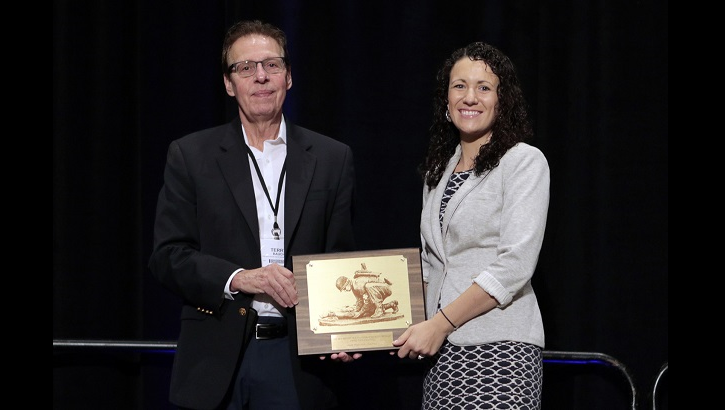
Record number of competition abstracts received; almost 1,500 posters presented
MHSRS 2019 Army Maj. Nicholas Koreerat
Video
8/22/2019

Army Maj. Nicholas Koreerat talks about his poster research
MHSRS 2019 Army Col. Deydre Teyhan and Command Sgt. Maj. Natasha Santiago
Video
8/22/2019

Army Col. Deydre Teyhan and Army Command Sgt. Maj. Natasha Santiago speak about WRAIR at MHSRS
MHSRS 2019 Army Sgt. 1st Class Noah Gaylor
Video
8/22/2019

Army Sgt. 1st Class Noah Gaylor, a combat medic, talks about his experience at MHSRS 2019
MHSRS 2019 Navy Lt. Cdr. Andrew Olsen
Video
8/22/2019

Navy Lt. Cdr. Andrew Olsen speaks about his research
MHSRS 2019 Air Force Col. Eveline Yao, USSOCOM Surgeon General
Video
8/22/2019

Air Force Col. Eveline Yao, speaks about the relationship between USSOCOM and MHS research.
Unexpected survivors: Tapping the past to inform the future of casualty care
Article
8/21/2019
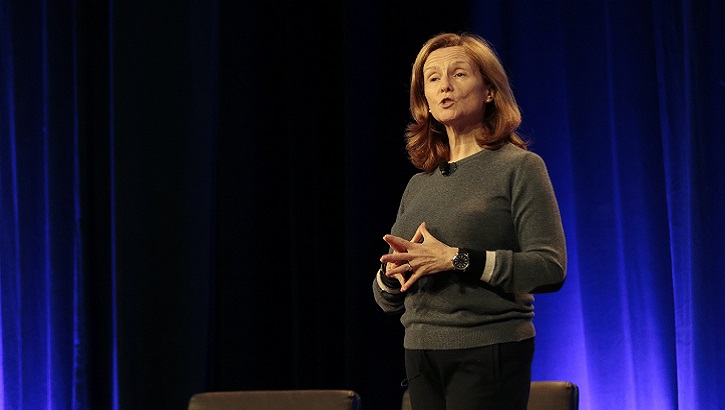
Plenary speakers focus on expanding readiness of providers and teams
Research for Readiness: Military Health System kicks off annual symposium
Article
8/20/2019
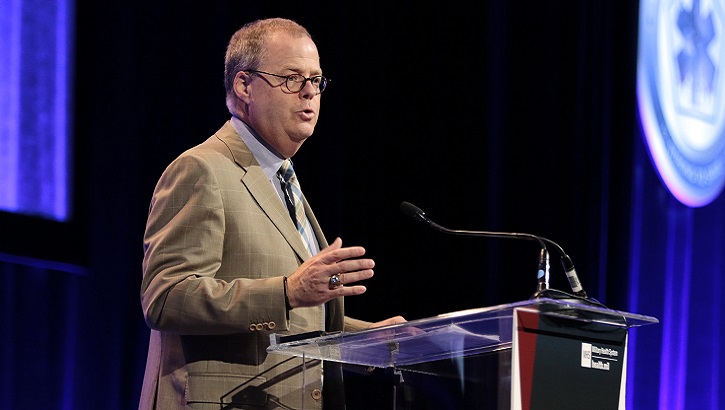
Research, development ensures service members are better prepared, better protected, better cared for
Individuals, teams honored at MHSRS for exemplary research
Article
8/20/2019
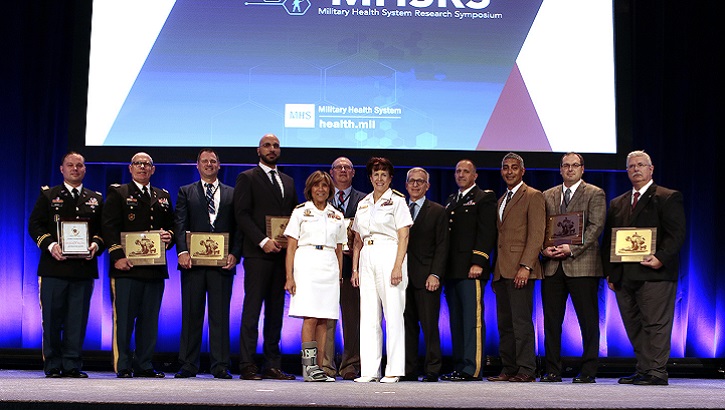
New nurse researcher award debuts this year
DHA plus DLA equals one joint approach for health care logistics
Article
8/20/2019
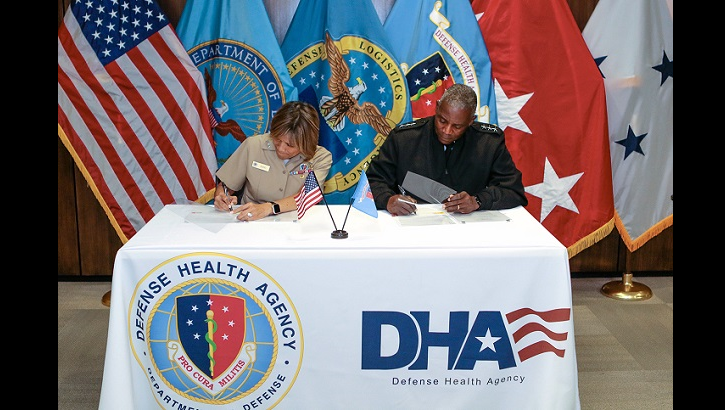
Agency directors sign memorandum of agreement
Navy Medicine researchers kick off 2019 Military Health System Research Symposium with strong showing
Article
8/20/2019
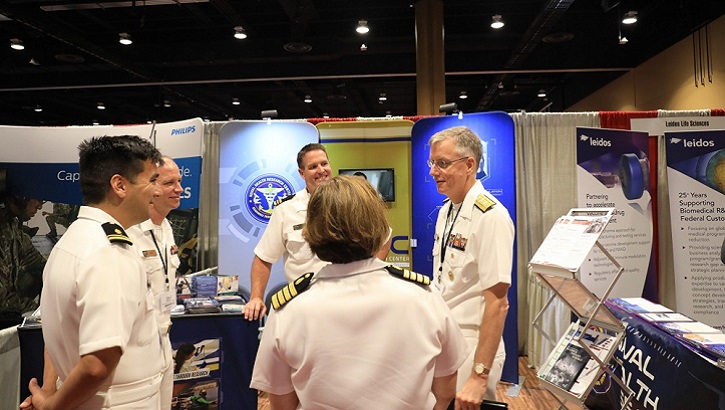
Dozens of scientists from Navy are presenting their work
Day 1 at the 2019 Military Health System Research Symposium
Video
8/20/2019
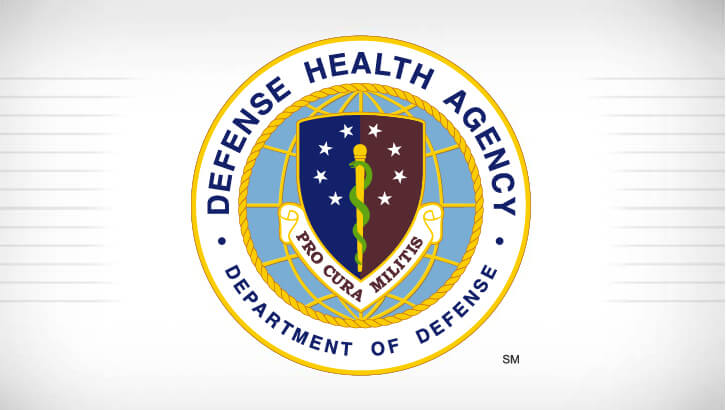
Navy Medicine researchers from across the globe convened Aug. 19 in Kissimmee, Florida for the start of the 2019 Military Health System Research Symposium (MHSRS) to discuss the latest scientific advances and initiatives that support warfighter health, readiness, and survivability. We had a chance to catch up with Navy Medicine leaders to get their perspectives on the impact of research to the warfighter, the Fleet, and the Fleet Marine Force.
AFRICOM holds annual Command Surgeon Conference
Article
6/3/2019
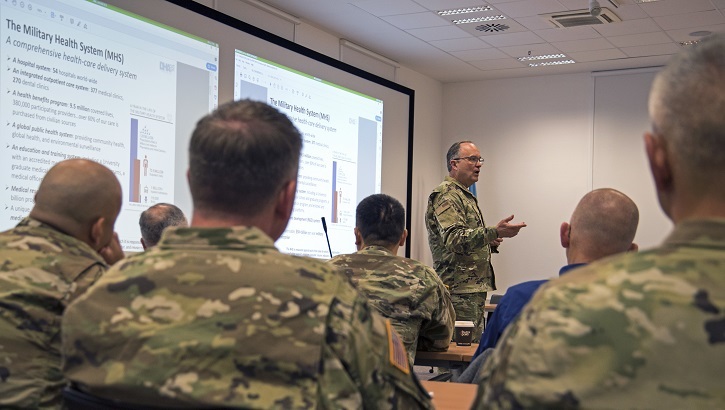
The conference brought together medical professionals from across the command, and interagency and foreign partners, to enable collaboration and discuss areas of concern
Dummies for doctors
Article
5/14/2019
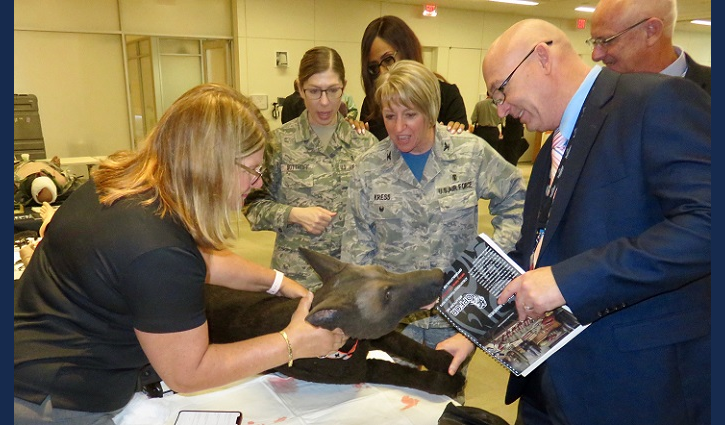
How technology is preparing the next generation of docs for the battlefield
Defense Health Agency leaders dominant at annual conference
Article
2/28/2019
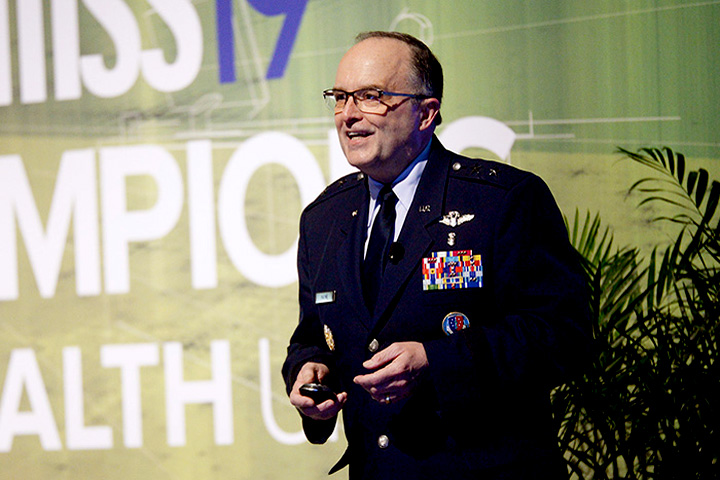
HIMSS 19 draws more than 45,000 people globally





















.png)









No hay comentarios:
Publicar un comentario